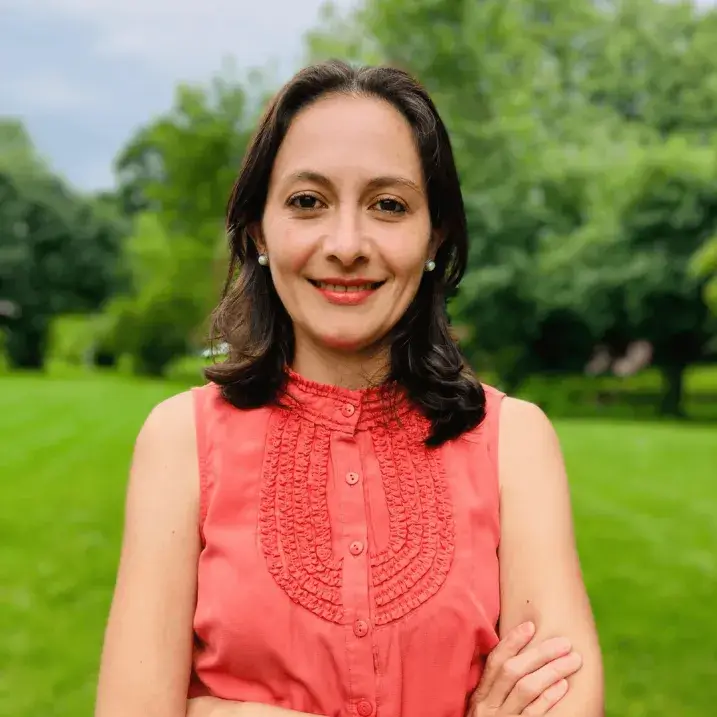- B.A. Economics, the Catholic University of Ecuador
- M.A. Development Economics, FLACSO Ecuador
- M.S. Complex Systems and Data Science, University of Vermont
Mathematics and Statistics, Nutrition and Food Sciences, and Food Systems
Areas of expertise
Data Science, Bayesian statistics, climate adaptation in agriculture, Agent-Based models, Federal crop insurance.
BIO
Elizabeth Espinosa is a Ph.D. candidate in Complex Systems and Data Science at UVM. She holds a B.A. in Economics from the Catholic University of Ecuador, an M.A. in Development Economics from FLACSO Ecuador, and an M.S. in Complex Systems and Data Science from UVM. She worked as a policy analyst, advisor, and researcher concerning welfare programs, women's economic participation, and children's wellbeing at Ecuadorian public institutions, academia, and international organizations, and recently as a research assistant of the Barracuda Project (Biodiversity and Rural Response to Climate Change Using Data Analysis). Elizabeth is particularly interested in understanding the effect of non-conservation government programs on farmers' diverse climate change adaptation decisions by applying complex systems approaches.
Bio
Elizabeth Espinosa is a Ph.D. candidate in Complex Systems and Data Science at UVM. She holds a B.A. in Economics from the Catholic University of Ecuador, an M.A. in Development Economics from FLACSO Ecuador, and an M.S. in Complex Systems and Data Science from UVM. She worked as a policy analyst, advisor, and researcher concerning welfare programs, women's economic participation, and children's wellbeing at Ecuadorian public institutions, academia, and international organizations, and recently as a research assistant of the Barracuda Project (Biodiversity and Rural Response to Climate Change Using Data Analysis). Elizabeth is particularly interested in understanding the effect of non-conservation government programs on farmers' diverse climate change adaptation decisions by applying complex systems approaches.
